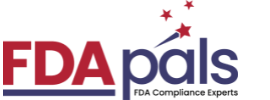Are you looking for a reputable medical device FDA Registration service to assist you in your gadget regulatory submission?
We are a group of dedicated professionals with more than five years of experience in the global medical devices industry and over 16 years of experience in medical industry as a whole.
For healthcare providers and medical device manufacturers, getting registered with the FDA is not a simple task. However, it is a crucial step in moving your medical device to market.
That’s why we’ve created a blog to help you register your medical device with the Food and Drug Administration (FDA). You’ll find everything you need to know about the type of medical device you’re marketing, establishing its classification and reimbursement, preparing for meetings with the regulatory staff, submitting an application for review, and much more.
The ultimate goal of any startup is to gain meaningful advantages over their competition. In the long run, this allows for greater market share and profits. For medical device companies, the process of gaining FDA registration is a major challenge. Unfortunately, without FDA registration, it’s extremely difficult to sell an invention within the United States. As such, you need to visit the Food and Drug Administration’s (FDA) website and fill out its online application called a medical device premarket notification form before offering your product for sale to patients within the United States.
Do I need to medical device FDA Registration ?
The answer to this question depends on the type of medical device you’re making. You’ll want to register your device if it meets one of the following criteria:
If it’s a Class III medical device, which includes anything that needs to be implanted into a person’s body and/or affects a person’s functioning in a way that they can’t control. If it’s any other kind of Class II or Class I medical device, which includes things like bandages and surgical instruments.
If you are a manufacturer of a medical device, then yes, you will need to register your device with the Food and Drug Administration (FDA). The FDA regulates all medical devices and requires that manufacturers register their products with the FDA before they can be sold commercially.
The purpose of this registration is to make sure that the device is safe for use. The FDA does this by requiring that manufacturers provide proof that their product has been tested for safety, effectiveness, and quality.
The FDA also requires that all manufacturers keep records of any adverse events related to their products so that they can be reported to the agency in case of an emergency or recall.
Who can register my medical device?
You can register your device with the FDA yourself. The steps are:
- Find the correct form. You can find these forms on the FDA website under “Device Registration” in the left-hand menu.
- Complete the form, including all required information and signatures. You will need to have this information on hand, including your name and address, contact information for your company, a list of all devices being registered by this application, and a completed Medical Device Reporting (MDR) form if applicable.
- Print out the final version of your application; don’t forget to include any attachments!
- Mail or fax your application to FDA’s Center for Devices and Radiological Health (CDRH).
If you need help in registration process so you can contact us directly.
What is a Unique Device Identifier (UDI)?
A Unique Device Identifier (UDI) is a unique identifier that identifies a device in a network. It is a string of numbers and letters, typically between 16 and 64 characters long, that is used to identify each device on a network or internet connection.
The UDI allows for various applications such as personalization, analytics, tracking and marketing. The UDI can be used for any number of purposes including:
- Targeted advertising by providing data to advertisers about the types of devices accessing their websites;
- Personalizing content by using the UDI as a means of identifying users and tailoring their experience accordingly;
- Tracking user behavior over time so that future campaigns can be optimized;
In addition to these uses, UDIs may also be used for other purposes such as preventing fraud by verifying that an online transaction is coming from an authorized source.
Medical product registration is becoming more essential with the advances in medical technology. Medical product manufacturers should consult a regulatory specialist to make sure the device has been evaluated by a competent registration body that can provide the right documentations before entry into the market.




